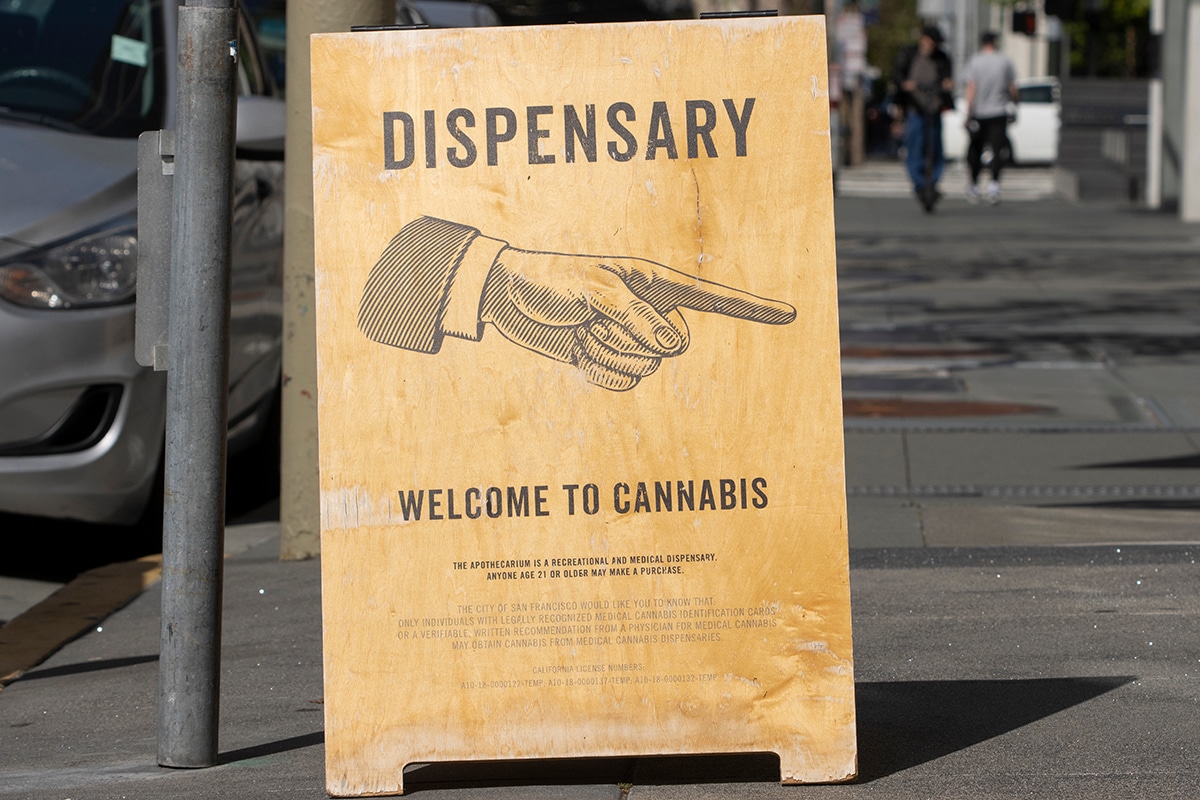
Summer Traveling With Medical Marijuana
June 2, 2025
Navigating Medical Marijuana and Employment in Massachusetts: What You Need to Know
June 24, 2025The Changing Landscape of Medical Marijuana in Massachusetts: What Patients Should Know
The Massachusetts medical marijuana program has been a cornerstone of cannabis access since its inception in 2012. While adult-use cannabis has dominated headlines in recent years, the medical program continues to serve tens of thousands of patients across the Commonwealth. Contrary to some narratives of decline, recent data reveals a more nuanced picture—one of evolution, resilience, and an urgent need for continued support.
In this article, we’ll explore the current state of medical cannabis in Massachusetts, clarify misconceptions, and share insights from the Massachusetts Patient Advocacy Alliance, Inc. (MPAA)—the state’s leading voice for patient rights and cannabis policy reform.
Medical Cannabis in Massachusetts: A Closer Look at the Numbers
One of the most commonly misunderstood topics is patient enrollment in the medical program. Unlike other states, Massachusetts has seen its medical program expand even after legalizing recreational cannabis. While patient enrollment peaked in 2020, current levels remain significantly higher than when recreational cannabis became legal in 2018.
Verified Patient Enrollment Figures:
- November 2018 (just before adult-use sales began): 57,872 active medical marijuana patients
- December 2020 (enrollment peak): 99,108 patients
- January 25, 2025: 82,820 patients
✅ This represents a 43.1% increase from the start of adult-use sales and only a 16.4% decrease from peak enrollment.
— Source: Massachusetts Patient Advocacy Alliance, 2025
So, while there has been a decline from peak numbers, enrollment in the medical cannabis program remains solid, serving a vital role in the state’s broader healthcare and wellness landscape.
Dispensary Shifts: Fewer Solely Medical, but Access Remains
It’s true that some dispensaries have surrendered their medical licenses, opting to focus solely on recreational sales. However, the disparity in numbers is often misunderstood as obtaining a medical license involves more hurdles, while it’s generally easier to obtain a recreational license, which skews the balance between the two.
Verified Dispensary Licensing Data:
As of February 2025, the Cannabis Control Commission (CCC) reports 87 expired or surrendered Medical Treatment Center (MTC) licenses. Approximately 94 medical dispensaries remain statewide, compared to over 350 recreational. The majority of medical dispensaries are co-located with recreational operations, while fewer than a dozen are medical-only facilities. As of February 2025, the Cannabis Control Commission (CCC) reports:
- 87 expired or surrendered Medical Treatment Center (MTC) licenses
- Approximately 94 medical dispensaries remain statewide, compared to over 350 recreational.
- The majority of medical dispensaries are co-located with recreational operations
- Fewer than a dozen are medical-only facilities
✅ “The number of solely medical dispensaries is small, largely due to outdated regulatory barriers that prevent more from opening, but co-located facilities do continue to serve the medical community with dedicated products, pricing, and benefits.”
— Massachusetts Patient Advocacy Alliance, 2025
Bridging the Gap: Education and Support Are Key for Medical Cannabis Patients
While Massachusetts’ medical marijuana program remains stable and essential, there’s a growing need to both educate recreational consumers about its benefits and continue supporting those already enrolled. Many potential patients may not realize that the medical program offers more than just access—it provides a comprehensive framework for safer, more affordable, and more personalized cannabis care. Medical products are subject to stricter testing standards and quality control measures, which helps ensure consistent dosing, fewer contaminants, and better labeling—especially important for patients managing chronic or complex conditions. Additionally, patients in the medical program have access to consultations with certified healthcare providers who can guide them toward specific strains, dosages, and delivery methods tailored to their symptoms and medical history, unlike the one-size-fits-all approach often found in the recreational market. Support from policymakers is crucial as well. We cannot sustain a medical program built on regulations from over a decade ago. As the program evolves, so do patient needs. It’s important that policymakers modernize the program to ensure it truly serves the people it was designed to help.
Here are a few key challenges Massachusetts must address to preserve and strengthen its medical cannabis system: Here are a few key challenges we must address together:
- Lack of Awareness: Many adult-use consumers are simply unaware of the significant advantages that come with being a registered medical patient—like tax savings, stronger formulations, and higher legal possession limits.
- Blurring Lines and Lost Identity: As medical and recreational markets increasingly overlap, the distinct identity and purpose of medical cannabis risks being diluted. Without intentional education, the value of the medical program may be overlooked, especially by new or casual cannabis users.
- Outdated Regulations and Policy Stagnation: The medical program cannot thrive under outdated rules—such as zoning laws that limit standalone medical dispensaries, burdensome certification processes for doctors, or rigid dispensary licensing structures that discourage new entrants. These barriers make it difficult for new providers to open, particularly those who want to serve only medical patients and limit options for patients in underserved areas. Outdated Regulations and Policy Stagnation: The medical program cannot thrive under outdated rules. To expand access and improve care, we need responsive policy changes that remove unnecessary barriers and allow the program to grow with patient needs.
Why It Matters
To ensure the long-term success of the program, we must not only maintain but actively promote medical cannabis education—especially to those currently navigating the adult-use market who may qualify and benefit from becoming certified patients. At the same time, we must continue to uplift and prioritize the needs of current patients, many of whom rely on medical cannabis to manage serious and chronic health conditions.
Why Patients Still Choose the Medical Program
Medical cannabis patients in Massachusetts receive significant benefits not available to recreational users:
- No cannabis tax: Medical patients are exempt from the 20% state tax on recreational cannabis.
- Higher possession and cultivation limits
- Access to high-potency and specialized formulations
- Priority service and discounts at many dispensaries
- Legal protections and more personalized consultations: Medical patients have certain legal safeguards, such as protection against employment discrimination in some cases and allowances for possession or use in settings where recreational use might be restricted. Additionally, certified patients receive more individualized attention through mandatory consultations with healthcare providers who assess their medical history and recommend specific products, dosages, and consumption methods tailored to their health needs.
These incentives make the program valuable, especially for patients managing chronic pain, cancer, PTSD, and other qualifying conditions.
Legislative Action to Expand Access
The Massachusetts Patient Advocacy Alliance continues to advocate for policies that strengthen the program. In 2025, MPAA worked closely with legislators to introduce two key bills: H.163 and S.83 . These measures aim to expand the medical cannabis program by:
- Eliminating barriers to medical licensure for dispensaries
- Establishing reciprocity for out-of-state patients
- Removing the vertical integration requirement so every dispensary can add a medical register.
✅ “Since 2018, MPAA has worked to eliminate outdated policies that restrict access. We remain committed to improving the medical marijuana system for all patients in Massachusetts.” — MPAA
Looking Ahead: A Program Worth Strengthening
The Massachusetts medical marijuana program is not a shadow of its former self—it’s a maturing system that continues to serve tens of thousands of patients each year. However, it needs support, modernization, and public awareness to remain a viable healthcare option.
Medical marijuana remains a critical healthcare tool in Massachusetts. While the cannabis industry evolves, we must not forget the patients who fought for legal access and still rely on the program for safe, affordable treatment.
With patient-first advocacy from groups like the Massachusetts Patient Advocacy Alliance and active participation from dispensaries, providers, and policymakers, we can ensure the future of medical cannabis remains strong, compassionate, and inclusive.
If you’re considering becoming a medical marijuana patient or are unsure whether the program is right for you, explore your options today and take advantage of the significant benefits it provides.

Sources:
- Massachusetts Patient Advocacy Alliance, Inc. (MPAA)
- Cannabis Control Commission (Massachusetts)

